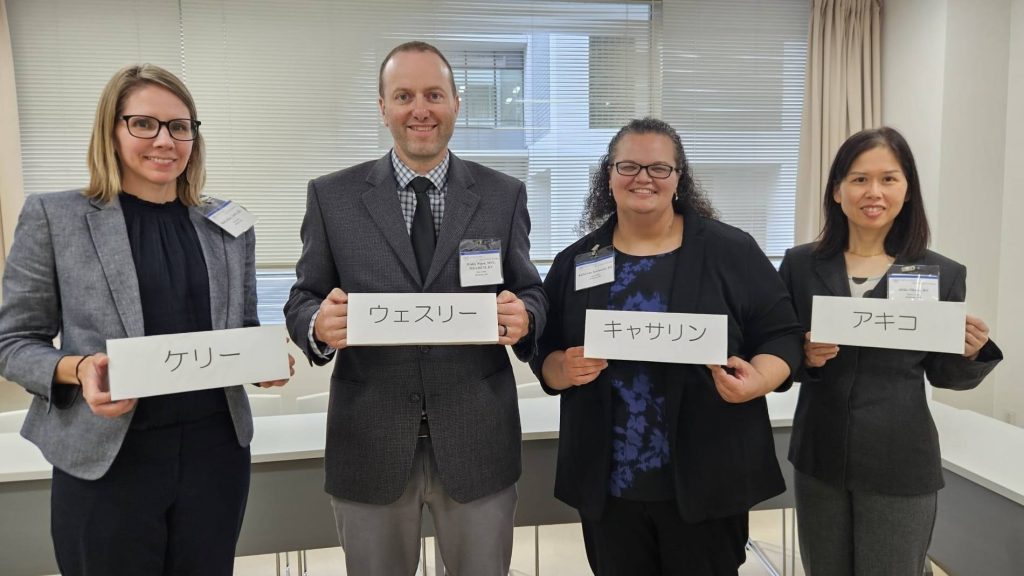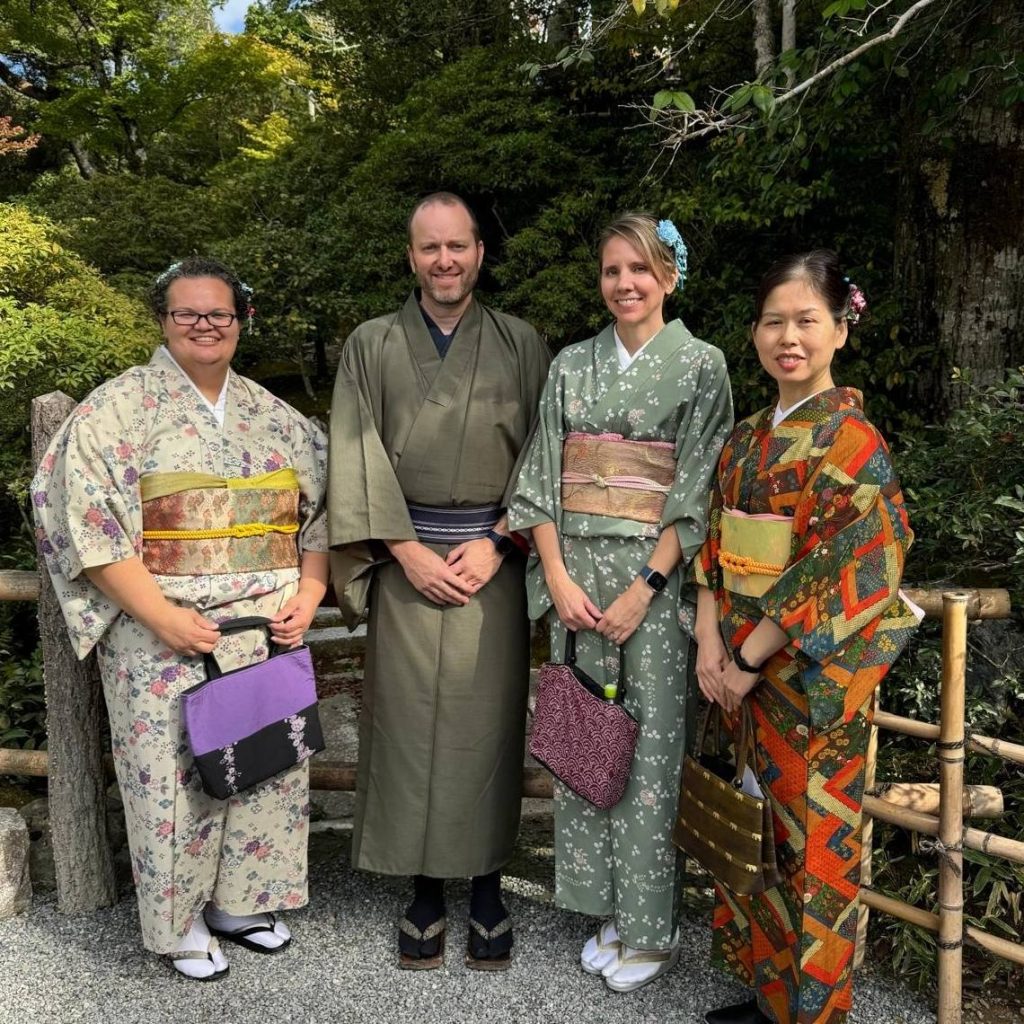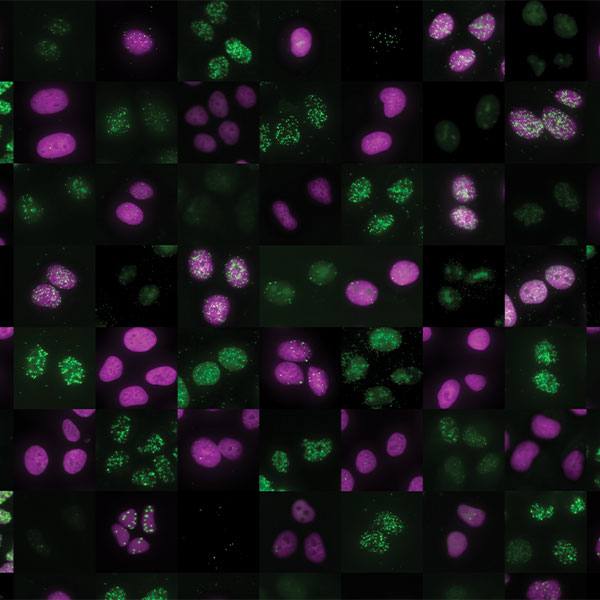-
Nursing staff share expertise in Japan, carrying on Mayo tradition

Editor's note: May 6-12 is National Nurses Week.
Six thousand miles from Rochester, Minnesota, a book in Tokyo features photos of Mayo Clinic nurses who have visited over the years.
Recently, four more Mayo nursing staff members were added to the book after a 10-day visit to Japan, where they served as ambassadors for Mayo Clinic — sharing their professional expertise and gaining insights into Japanese nursing practices they could bring back home.
Since 1991, nurses from Japan and Mayo Clinic in Rochester have visited each other through the Japan Nursing Exchange Program. Created by the Kimura Foundation for Nursing Education, the program aims to foster global collaboration by sharing nursing knowledge and practices among individuals, organizations and nations.
"Mayo Clinic nurses are esteemed worldwide for their expertise and professionalism," says Ryannon Frederick, Mayo's chief nursing officer. "Through the Japan Nursing Exchange Program, we share best practices in nursing, model leadership and elevate the role of nurses in healthcare ― with the goal of improving healthcare and the patient experience across the globe."
Carrying on Mayo's legacy of international knowledge-sharing
Mayo Clinic has a long tradition of global collaboration. From the earliest days, the Mayo brothers traveled internationally to learn new techniques, present at medical meetings and bring their knowledge to other institutions.
Today, the Department of Nursing is carrying on this tradition through initiatives like the Japan Nursing Exchange Program — advancing Mayo's work as a global leader in healthcare and nursing.
The Japan visit was centered on knowledge-sharing and cultural exchange. The Mayo team presented at several institutions, including Japan's National Cancer Center, Keio University Hospital, Kitasato University Hospital and St. Luke's University Hospital.

They also participated in informal discussions throughout their visit, toured historical sites, enjoyed traditional Japanese cuisine and were honored by a group of talented artisans with the experience of dressing in kimonos.
The visit culminated in an educational event hosted by the Kimura Foundation where the Mayo team delivered presentations to nurses across Japan, both in person and virtually, with assistance from interpreters.
Kelly Kiker, a nursing education specialist and the trip facilitator, presented the Mayo Clinic Nursing Professional Practice Model. Centered on relationship-based care, this model emphasizes the caregiver's strong connection with the patient and honors each patient's humanity and dignity.
Wes Nigon, a registered nurse case manager, spoke about nursing quality metrics. "They were very curious about what we do here that is evidence-based, and what we've shown helps our patients in the most efficient manner when they're in the hospital," he says. Notably, Nigon says, hospitals in Japan do not have a nurse quality specialist role, which is embedded across Mayo Clinic's medical practice.
Other topics the team presented were virtual nursing care, nursing retention and preventing burnout, pressure injury prevention and nurse well-being.
The Mayo team also included Katie Kielkucki, a registered nurse in Nursing Virtual Care and inpatient Medical Gastroenterology, and Akiko Okano, a registered nurse in Wound Ostomy Continence.
"To be able to share our expertise was very rewarding," Nigon says.
Gaining fresh perspective and professional growth
During hospital tours, the team observed how care is delivered in Japan while learning about differences in the country's nursing profession and healthcare structure.
They saw key differences, including longer hospital stays, less common home healthcare and broader, less specialized nursing roles. They found that in Japan, continuing education is highly valued but not required for nurses to maintain their licensure.
"It was humbling to see what nurses in Japan are working with versus resources we have at Mayo," Kiker says. "We have more autonomy and are more empowered to make decisions as nurses — more recognized as professionals."
Okano says the trip deepened her appreciation of culturally appropriate care. "Learning similarities and differences in nursing, healthcare and culture between Japan and Mayo Clinic helped me appreciate what patients from another culture experience at Mayo Clinic," she says.
"Mayo nurses are global leaders in nursing, caring for patients from all over the world," Okano adds. "It is too complex to understand another culture with one single patient encounter or one single trip to another country. However, I believe it is very important for nurses to experience similarities, differences and humanity through global programs like this."
Despite differences, the Mayo team found they had much in common with their Japanese counterparts.
"We're all caring healers. We're advocates for patients. We're guardians," says Kielkucki.
"Having opportunities and experiences like this Japan Exchange can help nurses see just how important their everyday job is to the whole of Mayo Clinic. We do truly make a difference in the world. The respect and admiration the people of Japan had for all four of us was indescribable and extremely humbling. I am still at a loss for words to truly explain what this entire experience felt like," she says.
Learn more about nursing at Mayo Clinic.







